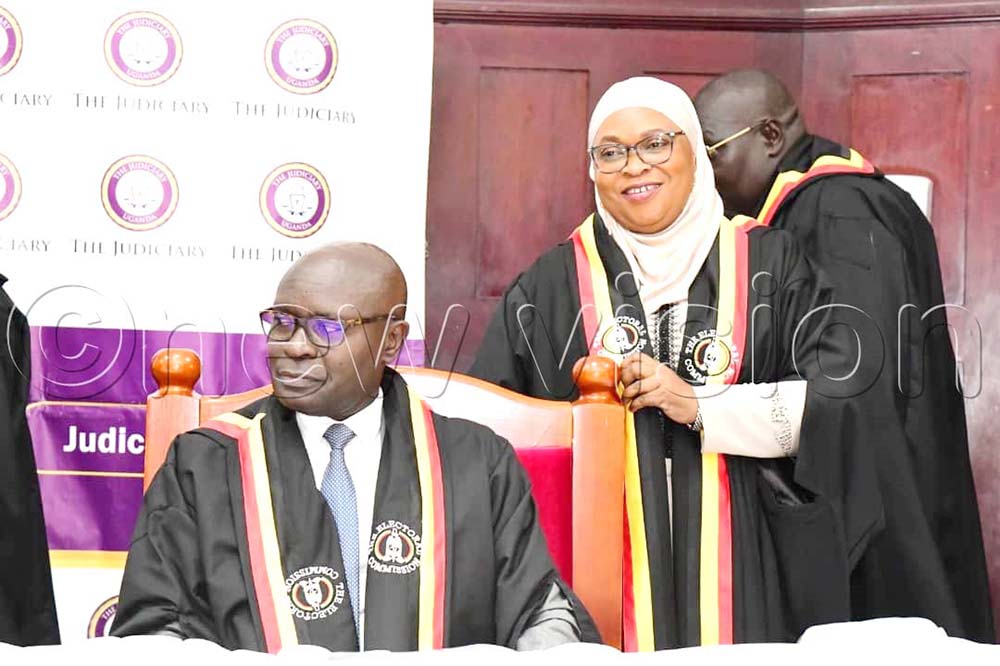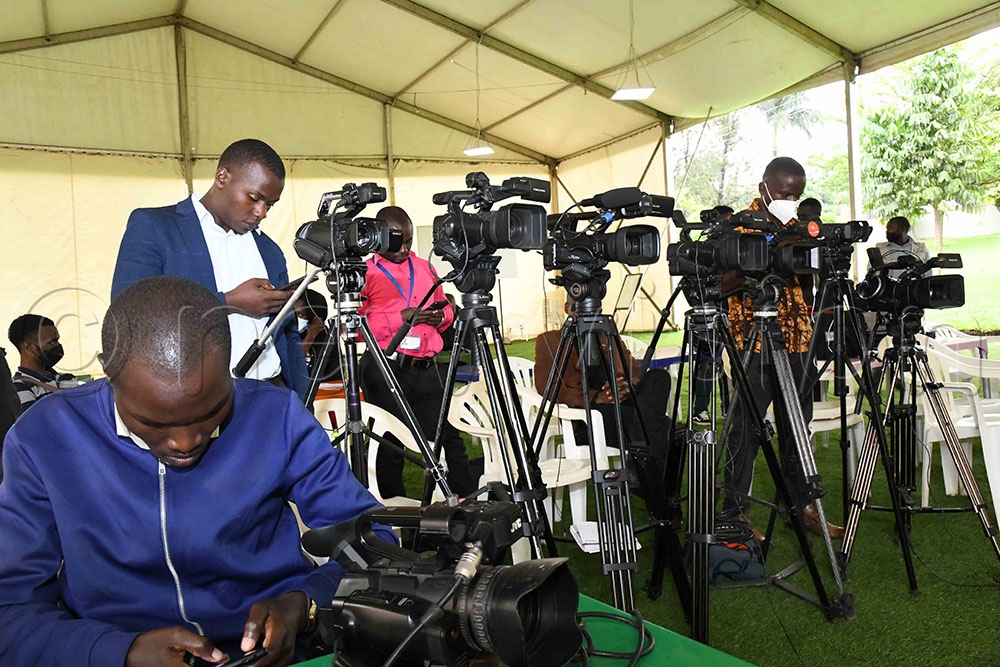Electoral Commission petitioned over journalist safety ahead of 2026 polls
Rukundo emphasises that the escalating attacks have deepened fear and anxiety among media practitioners, particularly as Uganda moves closer to the high-stakes 2026 elections.
UJA President Mathias Rukundo (C)
KAMPALA - Journalists under their umbrella organisation, Uganda Journalists Association (UJA), have formally petitioned the Electoral Commission (EC), demanding urgent assurances on the safety of journalists during the upcoming 2026 General Election, citing a worrying trend of brutality and harassment by security agencies.
In a letter addressed to the EC and signed by UJA President Mathias Rukundo, the association called on the Commission to publicly commit to protecting media practitioners, especially in light of recent violent incidents, including the March 13, 2025, Kawempe North byelection, during which 36 journalists and their drivers were attacked and injured by suspected security personnel.
“These grave atrocities were a deprivation of their right to freedom of speech and expression, which includes freedom of the press and other media as enshrined under Article 29(1)(a) of the Constitution of Uganda,” Rukundo states.
The journalists, some of whom were left physically and psychologically impaired, were assaulted by people suspected to have been Joint Anti-Terrorist Task Force (JATT) officers while covering the by-election.
In addition to bodily harm, many lost valuable work tools — including mobile phones, cameras, and live broadcast units — which were confiscated and never returned, UJA noted.
Electoral Commission (EC) chairperson Justice Simon Byabakama.
‘Safety cannot be left to chance’
Rukundo emphasises that the escalating attacks have deepened fear and anxiety among media practitioners, particularly as Uganda moves closer to the high-stakes 2026 elections.
“In the spirit of curbing electoral violence that threatens peace and stability in this country, we urgently call upon the Electoral Commission to intervene,” he wrote.
UJA is urging the EC to take the following actions:
1. Pronounce itself clearly and urgently on the measures it will implement to ensure journalist protection during the 2026 electoral cycle.
2. Facilitate a comprehensive dialogue on press safety ahead of the elections.
3. Partner with UJA to organize a national stakeholders’ dialogue, including media players and security agencies, to foster mutual understanding of the media’s role during elections.
4. Support capacity-building trainings for journalists on electoral reporting to enhance professional coverage and safety awareness.
Pattern of violence
Uganda has consistently come under criticism for its treatment of journalists, particularly during electoral seasons. Human rights organisations have documented numerous instances where members of the press have faced arrests, intimidation, and physical assault while covering opposition rallies, protests, and election-related events.
The 2020–2021 general election period saw some of the most egregious cases, including the shooting of journalist Ashraf Kasirye, who suffered a severe head injury during a campaign event. In its 2024 report, Reporters Without Borders ranked Uganda 132nd out of 180 countries on the World Press Freedom Index, citing persistent abuse and impunity.
Rukundo stressed that the safety of journalists must not be treated as a secondary concern.
“We have a strong belief that the actions we are proposing would help create a fertile ground for solutions to the prevailing safety challenges facing journalists, if given consideration,” he said.

Rukundo stressed that the safety of journalists must not be treated as a secondary concern.
No place for violence
When contacted, EC spokesperson Julius Mucunguzi reaffirmed the Commission’s position that violence of any kind has no place in the electoral process.
“Violence on anybody, by anybody, in the electoral process has no place at all,” Mucunguzi said. “The safety and security of the media and journalists is linked to the security and safety of everybody in the electoral process.”
He stressed that all actors, including journalists, must operate within the legal frameworks provided by the Electoral Commission and the Constitution.
“We ask everybody, including journalists, to follow the laws that govern elections and to do what is required of them in accordance with the law and our guidelines. Nobody is above the law,” he added.
According to Mucunguzi, electoral violence often stems from disregard for legal procedures by political actors and other stakeholders. He urged full compliance with the Commission’s operational guidelines.
When asked about security agency involvement, Mucunguzi said the law clearly assigns the duty of maintaining law and order to the Uganda Police Force.
“The law provides for the police to provide security and ensure law and order. That is their constitutional obligation, and our expectation is that they will continue to do their role as they have always done it.”
Election dates
EC announced that nominations for presidential and parliamentary candidates will take place between September 17 and October 3, 2025.
Campaigns are scheduled to begin in the second week of October, leading up to polling day on January 12, 2026 for both presidential and parliamentary elections.